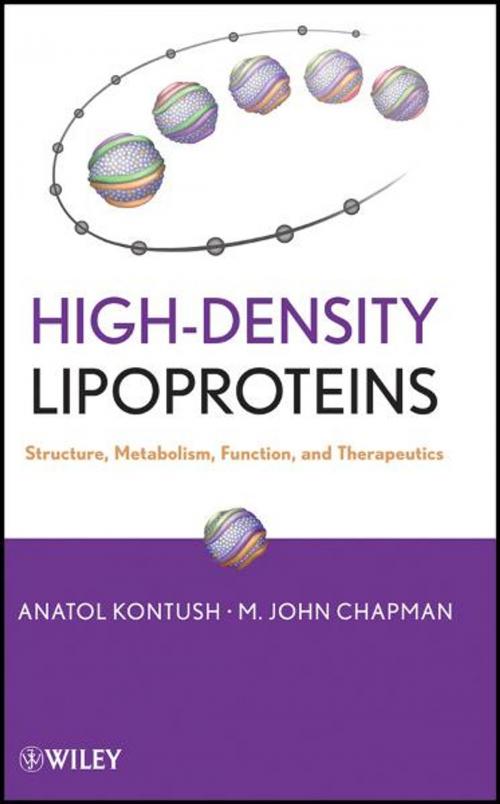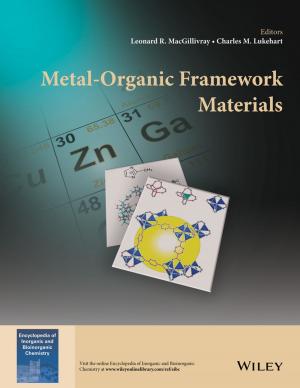High-Density Lipoproteins
Structure, Metabolism, Function and Therapeutics
Nonfiction, Science & Nature, Science, Biological Sciences, Biochemistry| Author: | Anatol Kontush, M. John Chapman | ISBN: | 9781118158661 |
| Publisher: | Wiley | Publication: | November 30, 2011 |
| Imprint: | Wiley | Language: | English |
| Author: | Anatol Kontush, M. John Chapman |
| ISBN: | 9781118158661 |
| Publisher: | Wiley |
| Publication: | November 30, 2011 |
| Imprint: | Wiley |
| Language: | English |
A complete guide to the role of high-density lipoproteins (HDL) in new and emerging therapies
With high-density lipoproteins (HDL) playing an increasing role in cardiovascular disease prevention, there is a growing need for an in-depth look at HDL and its clinical value. This book summarizes the current state of knowledge in the field, providing for the first time a comprehensive, systematic, stylistically coherent, and up-to-date review of the composition, structure, heterogeneity, metabolism, epidemiology, genetics, and function of HDL.
Divided into three main parts, High-Density Lipoproteins first examines normal HDL particles, then describes defective HDL, and finally addresses the therapeutic normalization of subnormal levels and defective biological activities of this lipoprotein class. The book highlights the functional properties of HDL, which are relevant to the pathophysiology of atherosclerosis and thrombosis, and discusses the compositional and metabolic heterogeneity of HDL particles.
Readers will come away with a clear understanding of the role of HDL in biological processes, the potential value of functional HDL as a therapeutic target, and how current and emerging therapies are poised to influence the treatment of heart disease in the future.
A complete guide to the role of high-density lipoproteins (HDL) in new and emerging therapies
With high-density lipoproteins (HDL) playing an increasing role in cardiovascular disease prevention, there is a growing need for an in-depth look at HDL and its clinical value. This book summarizes the current state of knowledge in the field, providing for the first time a comprehensive, systematic, stylistically coherent, and up-to-date review of the composition, structure, heterogeneity, metabolism, epidemiology, genetics, and function of HDL.
Divided into three main parts, High-Density Lipoproteins first examines normal HDL particles, then describes defective HDL, and finally addresses the therapeutic normalization of subnormal levels and defective biological activities of this lipoprotein class. The book highlights the functional properties of HDL, which are relevant to the pathophysiology of atherosclerosis and thrombosis, and discusses the compositional and metabolic heterogeneity of HDL particles.
Readers will come away with a clear understanding of the role of HDL in biological processes, the potential value of functional HDL as a therapeutic target, and how current and emerging therapies are poised to influence the treatment of heart disease in the future.















